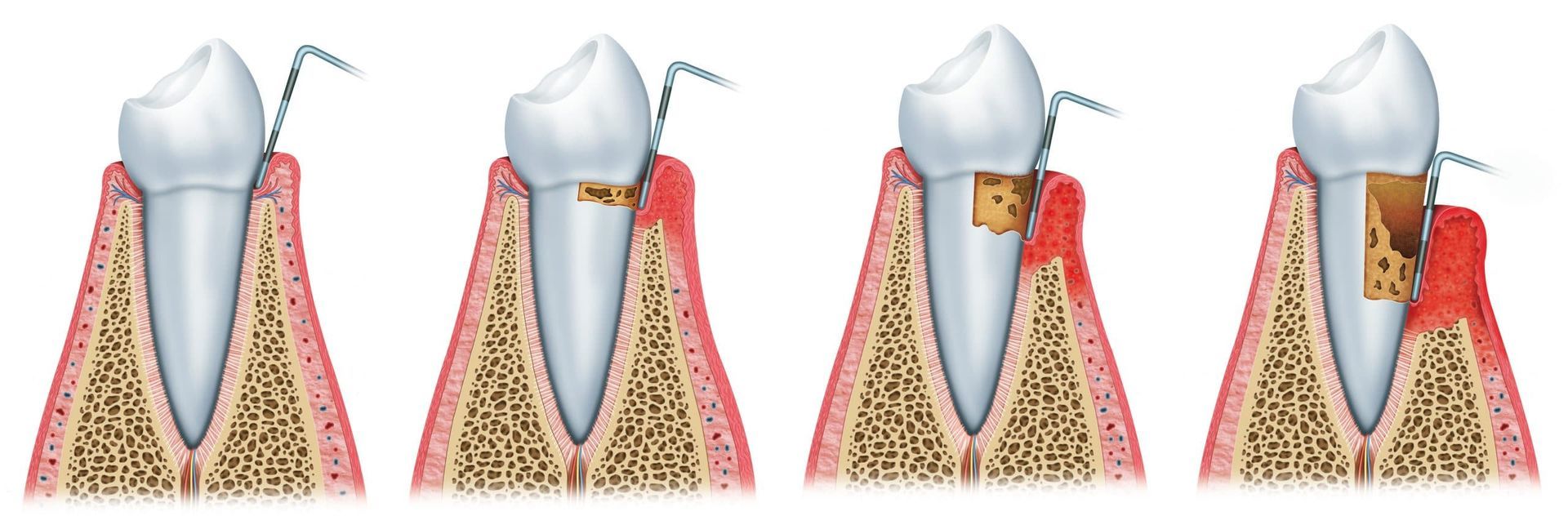Gingivitis

Gingivitis
Seek immediate treatment if gingivitis develops
Don't wait to see a dentist if your teeth are showing signs of gingivitis. If gingivitis is left untreated, the degenerative disease can cause significant tooth and gum deterioration. If an examination determines you have gingivitis, treating the condition is relatively simple and can be performed by your hygienist or dentist.
Bacteria thrive and multiply when plaque and tarter accumulate on the teeth. Bacteria causes gums to become inflamed and bleed, and those conditions are exacerbated when you eat or brush your teeth. Bleeding and inflamed gums are an early sign of gingivitis.
Early treatments for gingivitis include scaling and root planing. Many patients ask about the difference between the treatments. Scaling is the removal of the dental tartar from the tooth surface. Root planing is the process of smoothing the root surfaces to remove the infected tooth structure.
Scaling and planing are non-surgical procedures that are administered without anesthesia. While the procedures are usually painless, advanced stages of gingivitis may make it necessary to numb the area. Deep scaling and root planing is usually broken down into one section of the mouth per appointment. This allows for adequate healing time, and reduces the time for each appointment.
